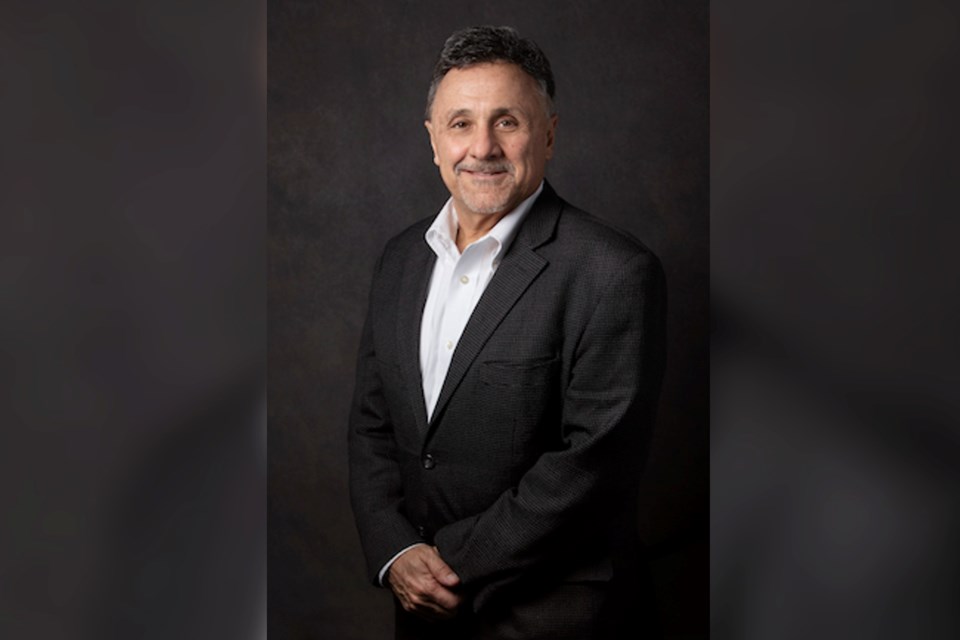The retired principal of Columbine High School said that if someone had told him before April 20, 1999, that a mass shooting could happen at the school, he wouldn’t have believed it.
Frank DeAngelis said this is a common sentiment at the sites of other mass school shootings, whether it’s Sandy Hook Elementary School or Stoneman Douglas High School — “we can’t believe it happened here.”
He said he doesn’t want to scare people, but he does want to prepare them, and he wants to reduce the chances of it happening at other schools.
“There's so many things now that we're doing, that are protecting our kids, protecting our students or our staff members,” DeAngelis said.
“I think things have changed as a result of it. There were so many lessons learned from Columbine, that we're doing things differently.
“And people tell me ‘Well, Frank, you know, you continue to go out and speak and do things, but the shootings continued.’ But I said, ‘How many have been stopped, how many lives have been saved, because of things we're doing differently?’ But we can't ever give up hope, we’ve got to continue.”
DeAngelis is coming to Sudbury on April 11, where he will give a free presentation on lessons learned from the Columbine shooting.
The Columbine High School shooting took place nearly 23 years ago, on April 20, 1999, at the high school in Littleton, Colorado.
The perpetrators, two senior students who later took their own lives by suicide, murdered 12 students and one teacher.
The incident received heavy media coverage at the time, and then was the subject of a 2002 Michael Moore documentary, “Bowling for Columbine” — DeAngelis actually takes issue with some of the material in the doc, saying it’s inaccurate.
DeAngelis started as a teacher at Columbine back in 1979, and became principal of the school in 1996. He stayed on as principal until 2014, until the last of the area kids who were in preschool at the time of the shooting had graduated from high school.
As he dealt with this unimaginable tragedy, DeAngelis said he relied on his family and friends, as well as his Catholic faith.
Feeling responsible, and wondering how he survived when so many did not, DeAngelis said the priest at his church said “God’s got a plan,” and what he needed to do was rebuild the school community.
As for what it’s going to take for such shootings to stop, DeAngelis said the question is complicated. “I use the analogy of the jigsaw puzzle.”
The pieces include tougher gun laws, robust mental health programs in schools, social media literacy and support for families.
“I use a phrase that they're all of our kids, and we need to do everything in our power to protect our kids,” DeAngelis said.
During his talk, DeAngelis said he will be speaking about providing leadership during a crisis situation, tying in what we’ve all collectively been through for the past two years — the COVID-19 pandemic.
“I think back to Columbine, and the enemy was the two killers,” DeAngelis said.
“Well, the enemy now is the pandemic. You look at the recovery, and there are so many similarities that we see. The social-emotional well-being of students, we had to deal with that after Columbine. Well, many of the educators now are having to deal with the social emotional learning of students, who are acting out, and things of that nature.”
The presentation with DeAngelis is being hosted by the Violence Threat Risk Assessment (VTRA) Steering Committee, and will be of special interest to first responders, health-care staff, educators, social workers, mental health personnel and parents/guardians.
The VTRA brings community partners together to provide a collaborative response to an individual of concern’s threat making behaviours. The goal is to keep the community safe by intervening before a violent incident occurs.
The group was convened more than a decade ago after Kevin Cameron, executive director of the North American Center for Threat Assessment and Trauma Response, visited Greater Sudbury.
Cameronled the crisis response in Taber, Alberta, after a school shooting there that occurred three days after the Columbine shooting.
DeAngelis was invited to speak in Greater Sudbury after a group from VTRA went to hear him speak prior to COVID at a conference put on by the North American Center for Threat Assessment and Trauma Response.
“When we were listening to his story, honest to God, you could have heard a pin drop,” said VTRA community co-ordinator Anna-Maria Barsanti.
She said she appreciates that DeAngelis has now adapted to speak about how his experiences at Columbine can be applied to COVID.
Barsanti, herself a retired educator, said she dealt with what could have been a deadly incident when she was a new principal at Northeastern Secondary School.
This was in February 1999, just months before the Columbine shootings in the United States. In the local incident, a homemade bomb was planted at the school. Fortunately for everyone involved, it wasn’t a very good bomb, as it didn’t go off — it just had smoke.
When the Columbine and Taber shootings happened months later, Barsanti said she then had kids in her office, asking “what would you have done?” She told them she would have done everything in her power to save them, even tackling the shooter.
DeAngelis’ presentation takes place 6-8 p.m. April 11 at the Caruso Club. People are welcome to join in-person or virtually through Zoom. The presentation will be in English.
To register for the in-person event or to receive the Zoom link, email Barsanti at [email protected].
